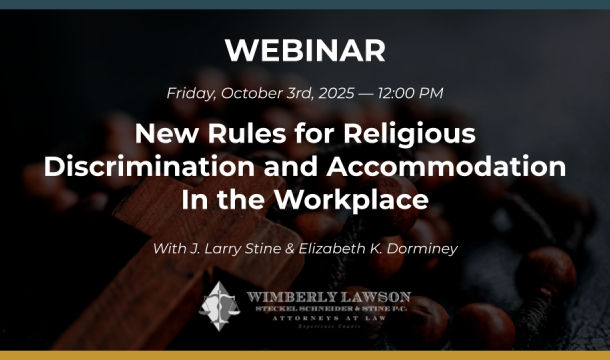Many businesses purchase business interruption insurance to protect the company against disasters. Almost 2,000 lawsuits have been filed against insurers on the issue of whether COVID-19-related shutdowns constitute a "direct physical loss of or damage to" property, as defined in the language of many business interruption insurance policies. To date, virtually every federal and state appellate court ruling on these issues has found no coverage and ruled in favor of the insurers.
In other cases, businesses have tried to rely on state or federal pandemic laws or regulations to exempt them from liability from COVID-19 related claims. Assisted living facilities have been hit with negligence claims for failure to take precautions regarding their residents. In general, the courts have strictly construed such COVID immunity statutes and regulations so as to allow such negligence claims to be brought.
In a case involving meat processing plants, some businesses have contended that President Trump's April 28, 2020 executive order to the Department of Agriculture required meat processing plants to stay open if they were following guidance from the federal Centers for Disease Control and Prevention and the Occupational Safety and Health Administration. In July, 2022, the U.S. Court of Appeals for the Fifth Circuit case involving Tyson Foods ruled that the executive order did not relieve meat processors from COVID-19 related claims. Employers have also argued that government-mandated shutdowns of business for COVID-19 or other reasons amounts to an unconstitutional "taking" of property. In a decision in Florida, the court found that such actions were a lawful exercise of government police powers, and the facts constitute a compelling enough government interest that it weighed against a finding that the plaintiffs' properties had been taken. Orlando Bar Group v. DeSantis (Fla. 5th DCA June 30, 2022.)
Most claims brought by employees against employers related to COVID-19 are subject to workers' compensation, as opposed to court negligence litigation. Reports indicate that a large number of these workers' compensation claims are being allowed by the state agencies as work-related. At the same time, the workers' compensation concept allows employers to escape court litigation over negligence. A few cases, however, are now addressing whether the workers' compensation pre-emption defense applies to a family member at home infected by a worker who acquired COVID-19 due to employer alleged negligence.
Editor's Note - This writer at one time investigated a claim that a shutdown caused by government action, such as by Immigration and Customs Enforcement (ICE), generated a business interruption claim for the employer's losses of business. Most business interruption policies contain an exception for recovery for governmental actions. However, some case law suggests that if the government actions were illegal or unconstitutional, the exception may not apply and recovery might have been allowed.
This is part of our August 2022 Newsletter.
View newsletter online
Download the newsletter as a PDF
Related Content
Get Email Updates

Trump Nominates Appointments to NLRB and EEOC but Policy Changes Likely to Be Delayed

DOL Launches Self-Audit Programs Designed to Help Employers Improve Compliance

DOL Must Release EEO-1 Reports to the Public under Open Records Laws

Current Advice on Active-Shooter Situations

New Policy for Federal Workers and Religious Expressions



